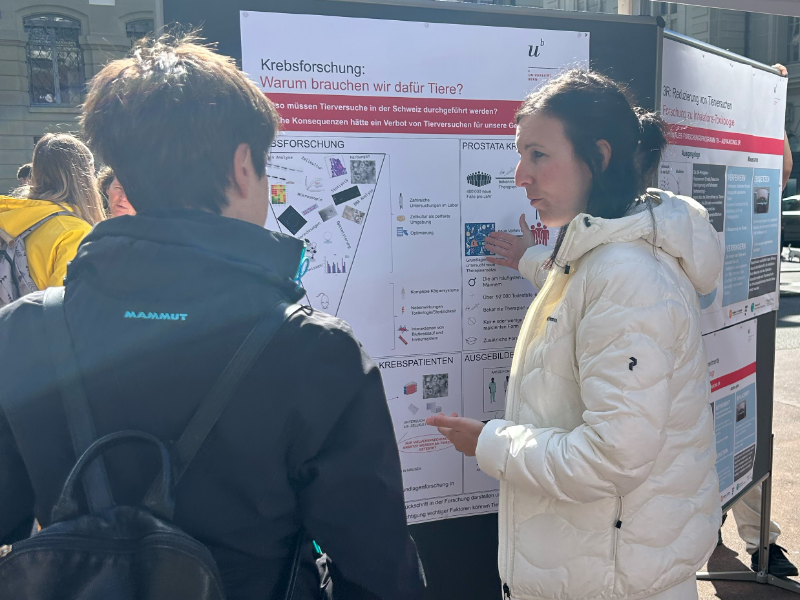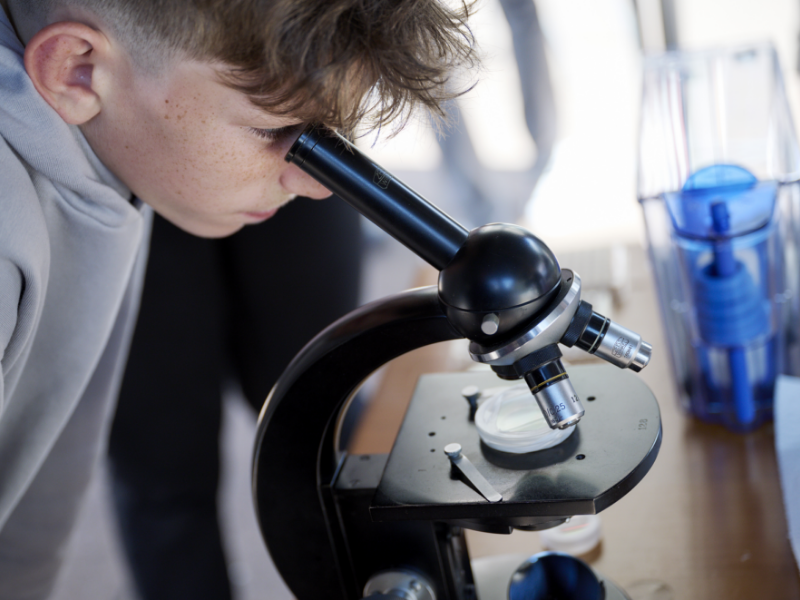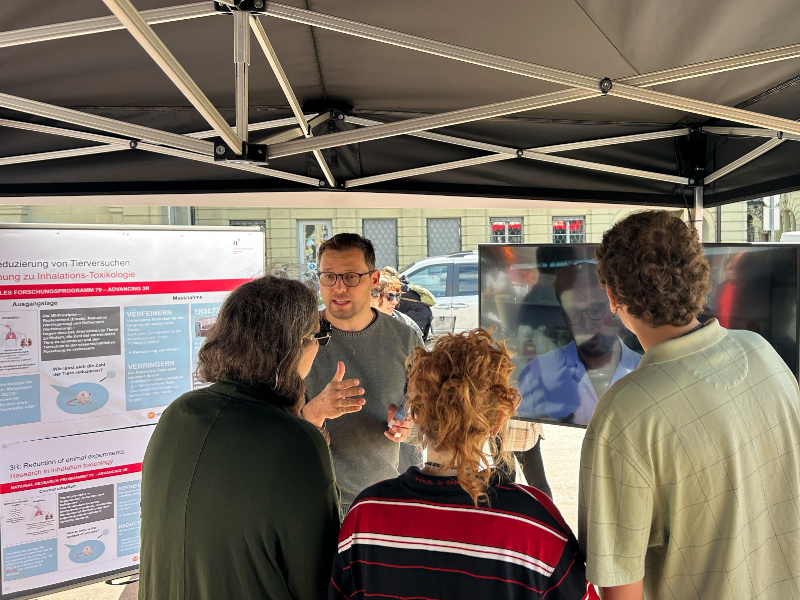Animal testing
Talking about animal experiments
During the National Information Day on Experimental Animals last weekend, researchers from the University of Bern presented their work involving animals experiments to the public in the city of Bern.

Numerous research projects in Bern contribute directly to improving human and animal health and promoting animal welfare. Animal experiments remain essential, for example in cancer research. The aim of the National Information Day on Experimental Animals in Bern was to show that the University of Bern conducts research responsibly and with respect for both animals and humans. The University of Bern took part in this event for the first time this year. Under the motto "Let's talk about research with animals", ten researchers from various disciplines presented their work and engaged with passers-by.
National Information Day on Experimental Animals
The National Information Day on Experimental Animals, introduced in 2022, aims to provide the public with first-hand information about animal experimentation and answer questions. The event was organized by the Research for Life foundation together with the Swiss Laboratory Animal Science Association SGV and the Swiss Association of Veterinarians in Industry and Research SAVIR. There were also booths in Basel, Fribourg and Zurich.

The range of topics was broad, encompassing cancer research with mice to studies on wild and farm animals. Researchers used posters, videos and illustrative materials to present their work, which aims to enhance the well-being of humans and animals. Figures on research involving animals at the University of Bern were also presented, as well as significant medical breakthroughs that would not have been possible without animal experiments.

The presentations generated lively interest, particularly the "voting board", where people could use adhesive strips (red for NO or green for YES) to vote on conducting experiments with wild animals like trout or wild boar. The green stickers clearly dominated in the end.

An important part of the information event was also the University of Bern's commitment to the 3Rs principle (Replace, Reduce, Refine), i.e. the replacement, reduction of animal experiments. For instance, blood is drawn from cattle to test for potential resistance to introduced diseases instead of subjecting animals to infection. Additionally, pigs can be treated or vaccinated easily and stress-free using aerosols.

The National Research Program NRP79 "Advancing 3R", in which the University of Bern is involved with numerous projects, was also discussed. One example is the development of a model aimed at replacing tests with rats in legally prescribed tests on toxicity assessments of substances. Additionally, efforts are underway to replace animal testing with organoids, mini-organs grown in the Petri dishes derived from stem cells. Organoids serve as valuable tools in fields such as cancer research. However, despite their potential, organoids do not yet fully replace in vivo studies with animals.

“We are very pleased with the event”, said Isabelle Desbaillets, Animal Welfare Officer at the University of Bern and one of the event organizers. “Passers-by engaged directly with researchers and could also discuss critical issues. They gained insights into our work and learned about the societal implications of a potential ban on animal testing.”
